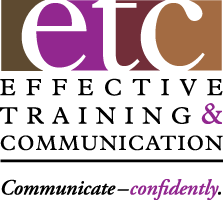Ever ask a colleague you see at a networking event ‘Why are you networking here tonight?’ I Don’t Get why so many of their answers are so unfocused, like ‘I don’t know … I’m just networking’, ‘To meet new people’, ‘My boss told me to do it’, ‘To tell my story to strangers’ or ‘I heard they’re serving shrimp’
Articles
Networking Defined
A reporter recently asked for my definition of ‘Networking’ …
‘Networking is simply the exchange of ideas, information or resources. It’s all about information. John Naisbit first described networking that way in ‘MegaTrends’ over 30 years ago.
I Don’t Get It – Vague References
I don’t get why so many workplace communicators still prefer vague words or phrases. Whether the choice is conscious or not, ‘specific beats vague’ every time.
Don’t Be a LinkedIn Loser
My recurring rants about LinkedIn Losers often generate reader reaction and commentary – both positive and negative. So … here we go again!
Make Listening Work
Last month’s frustrating rant reminded readers why we don’t listen very well. But not to worry – this month is all about what to do about that situation. Here are lots of simple ways to Make Listening Work for you.
Managing Your Presentation Anxiety
Last month, we discussed why you – and everyone else – has some degree of Presentation Anxiety and what may cause it. Assuming that information didn’t scare you too much, let’s turn attention to the positive steps you can take to Manage Your PA.
Lose Lame Lines
An often- overlooked element in any workplace email or memo is the simple little Subject Line. Depending on their content, they can add to the message or detract from the writer’s image of competency. So … here are a few tips to Lose Lame Lines:<!-
- ‘No Subject’ – the absence of a subject line is really lame. That says the writer was too lazy to think of something or too unimaginative. While either could be true, neither reader assumption helps the writer’s credibility. So … anything is better than nothing.
- ‘Meeting’ – at least better than ‘no subject’, but not much. It does tell the reader something about the message. Less helpful if the reader attends lots of meetings, however.
You’re Not Listening!
As workplace communicators, we obviously spend a lot of time each day communicating verbally. Therefore, we spend a lot of time listening … or should.
Problem is, we don’t listen very well. Especially those of us Type A Driver Entrepreneurs. Sound familiar? We regularly fall victim to one or more of these seven Barriers to Listening:
The Fear Factor
(Based on reader input and comments from my executive coaching clients, sounds like it’s time to re-visit this important topic.)
How many of you really dread speaking in public? Don’t be ashamed to admit it – most people do. Or, at the very least, they don’t like doing it.
‘Phil’s Faves’ on Workplace Writing
Participants in my ‘Painless Workplace Writing’ workshops or presentations regularly hear me repeat simple phrases as a way to reinforce key learning points. So, here are some of my Faves to help you take a little pain out of writing at work:
